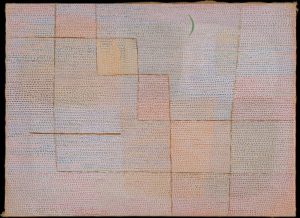“The Fragmentation of Economics and the New Role of the History of Economic Thought”. A Workshop in Torino

“The Fragmentation of Economics and the New Role of the History of Economic Thought” is a small-scale, interactive international workshop funded by the European Society for the History of Economic Thought (ESHET, Eshet Grant 2015), to be held in Turin on September 14-15, 2017, at the Fondazione Luigi Einaudi.
The workshop is part of a research project – team members are Mario Cedrini, Università di Torino; John B. Davis, Marquette University and University of Amsterdam; Angela Ambrosino, Stefano Fiori, Università di Torino) – on the possible implications, for the history of economic thought, of the new wave of studies exploring the history of economics using quantitative techniques of various kinds.
The workshop’s general aim is to assess the possibility that the current era of fragmentation (with mainstream economics in particular experiencing a phase of accrued internal “diversity”, if not “pluralism”) is widening the space for an original research program on the evolution of economics towards a possible post-foundational future. Roughly said, historians of economic thought could exploit the availability of both powerful quantitative techniques and new databases to reconstruct (by combining their traditional competencies with the history-of-economics-as-science perspective developed by economic methodologists, in a new, long invoked alliance with these latter) the non-foundational foundations of current work in economics. The ambition to produce significant developments in our knowledge about what economists do and how the discipline is orienting itself in the wider contexts of social sciences goes along with the attempt of indicating a possible strategy to rescue the history of economic thought from the oblivion to which mainstream economics would consign it.
Initial remarks by the institutions (ESHET; Despina – Big Data Lab, Università di Torino; Fondazione Luigi Einaudi npo) that supported the project are followed by some “technical” opening presentations.
Such presentations are intended to introduce the audience to the new quantitative historical studies of the evolution of the discipline, as well as to the new possibilities offered by recent developments in bibliometrics, network analysis, text-mining, and the original perspectives that these latter bring into focus.
Then, a number of contributions by leading specialists in the history of economic thought and economic methodology will examine some of the issues that are currently being discussed regarding the possible evolution of the discipline. In particular:
- the state of fragmentation and pluralism characterizing mainstream economics;
- the possibility of post-foundational development in economics, also in view of the relationships between economics and other social sciences;
- the possible new role of history of economic thought and economic methodology at an epoch when, as said, both new analytical techniques and the fragmented state of economics can help them regain a less peripheral position.
Website: postfoundationaleconomics.wordpress.com
Program
THE FRAGMENTATION OF ECONOMICS AND THE NEW ROLE OF THE HISTORY OF ECONOMIC THOUGHT.
TOWARDS A POST-FOUNDATIONAL ECONOMICS?
A workshop in Torino
Fondazione Luigi Einaudi, 14-15 September 2017
September 14
h. 15.00
Introduction and institutional addresses
Chronicles from the Great Fragmentation
h. 15.30
Angela Ambrosino, Mario Cedrini (Università di Torino), John B. Davis (University of Amsterdam and Marquette University), Stefano Fiori, Marco Guerzoni, Massimiliano Nuccio (Università di Torino)
“What Topic Modeling Could Reveal about the Evolution of Economics”
h. 16.00
François Claveau (University of Sherbrook)
“Macrodynamics of Economics: A Bibliometric History”
h. 16.30 Coffee break
h. 17.00
Jakob Kapeller (Johannes Kepler University Linz)
“Citation Metrics and the Development of Economics”
h. 17.30
Zakaria Babutsidze (SKEMA Business School, Sophia Antipolis)
“Nobel Prizes in Economics and Post‐Award Attention: Who Cares About What?”
h. 18.00 General discussion
September 15
On the Meaning and Feasibility of a Quantitative History of Economic Thought
h. 9.00
Matthias Klaes (University of Dundee)
“Quantitative Approaches to Historical Semantics in Economics”
h. 9.30
Alberto Baccini (Università di Siena)
“On Quantitative Tools for Studying Research (also in Economics)”
10.00 General discussion
h. 10.30 Coffee break
Pluralism in the Times of Fragmentation
h. 11.00
John B. Davis (University of Amsterdam and Marquette University)
“Specialization, Fragmentation, and Pluralism in Economics”
h. 11.30
Andrea Salanti (Università di Bergamo)
“Can Pluralism Be Unintended?”
h. 12.00 General discussion
h. 12.30 Lunch
History and Philosophy of Economics as Science
h. 14.00
Margaret Schabas (University of British Columbia, Vancouver)
“Economics as Science: The Problem of Foundations”
h. 14.30
Francesco Guala (Università di Milano)
“Economics as Science: The View from the Lab”
h. 15.00 General discussion
h. 15.30 Coffee break
Fragmentation and the History of Economic Thought
h. 16.00
Hans-Michael Trautwein (Carl von Ossietzky Universität Oldenburg, ZenTra; ESHET President)
“Historians of Economic Thought as Generalists of Last Resort?”
h. 16.30 Conclusions and planning of future activities
